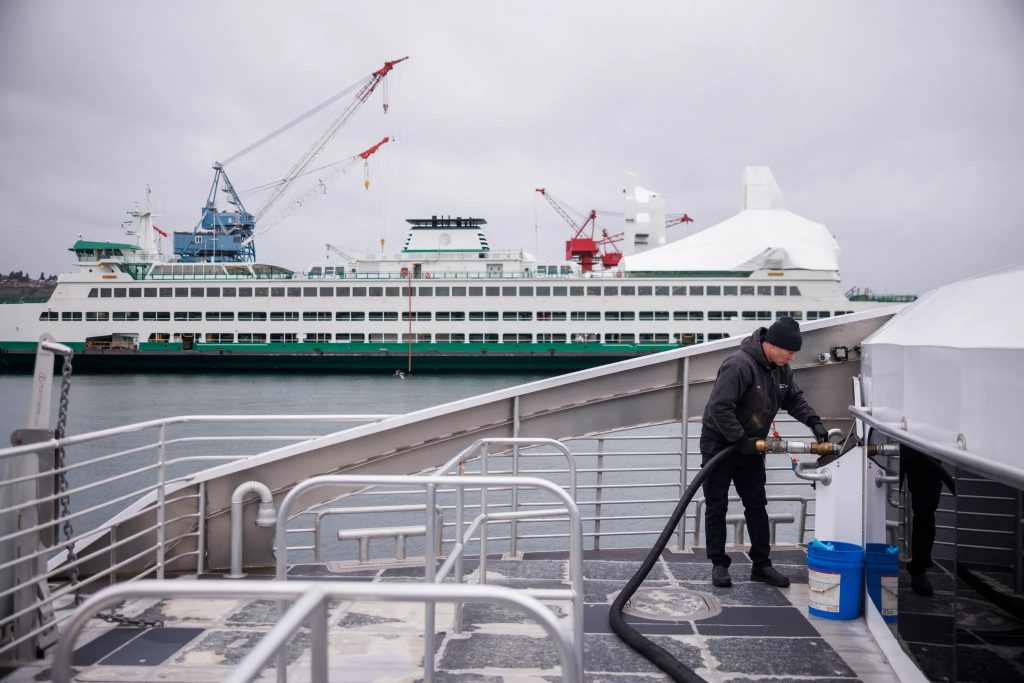King County Water Taxi to Transition to Renewable Diesel
4/24/2025

King County Metro’s (Seattle, WA) water taxi is to transition from standard to renewable diesel. The two primary water taxi vessels, the Doc Maynard and the Sally Fox, each use 125,000 gallons of fuel per year, on average. The transition to renewable diesel will reduce greenhouse gas emissions and air pollution as these vessels operate from downtown Seattle to West Seattle and Vashon.
“Reducing greenhouse gas emissions is key to fighting climate change,” said King County Executive Shannon Braddock. “Converting waste into renewable diesel transforms our water taxis and showcases repurposing in action. Metro is driving King County toward a cleaner, healthier future.”
Renewable diesel is made of nonpetroleum renewable resources such as natural fats, vegetable oils (like soybean oil), and greases. The total carbon emitted during the lifecycle of the fuel, from refining the source material to burning the fuel in an engine, can be 60 percent lower than petroleum diesel.
An advantage of renewable diesel is that it is a “drop-in” replacement for conventional fossil diesel. Because renewable diesel has the same chemical structure as petroleum diesel, it can be used in engines designed for conventional diesel with no modifications. Biodiesel, on the other hand, has a different chemical structure than petroleum diesel and is often mixed, or “blended”, with petroleum diesel to avoid damaging engines.
In addition to using renewable diesel, King County Metro’s Marine Division is actively exploring new, high-efficiency vessel designs and zero-emission propulsion systems for the next generation of its fleet.